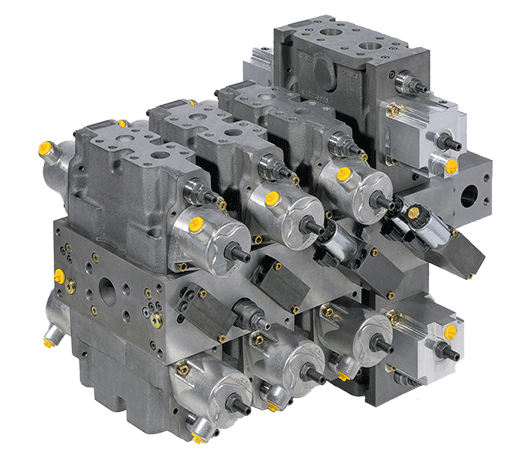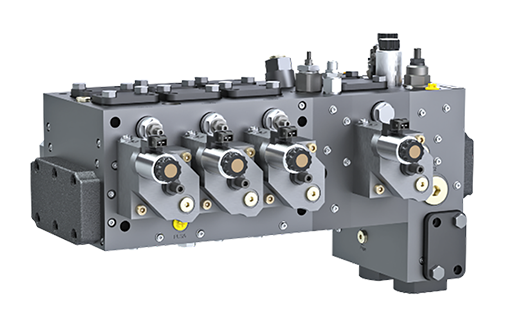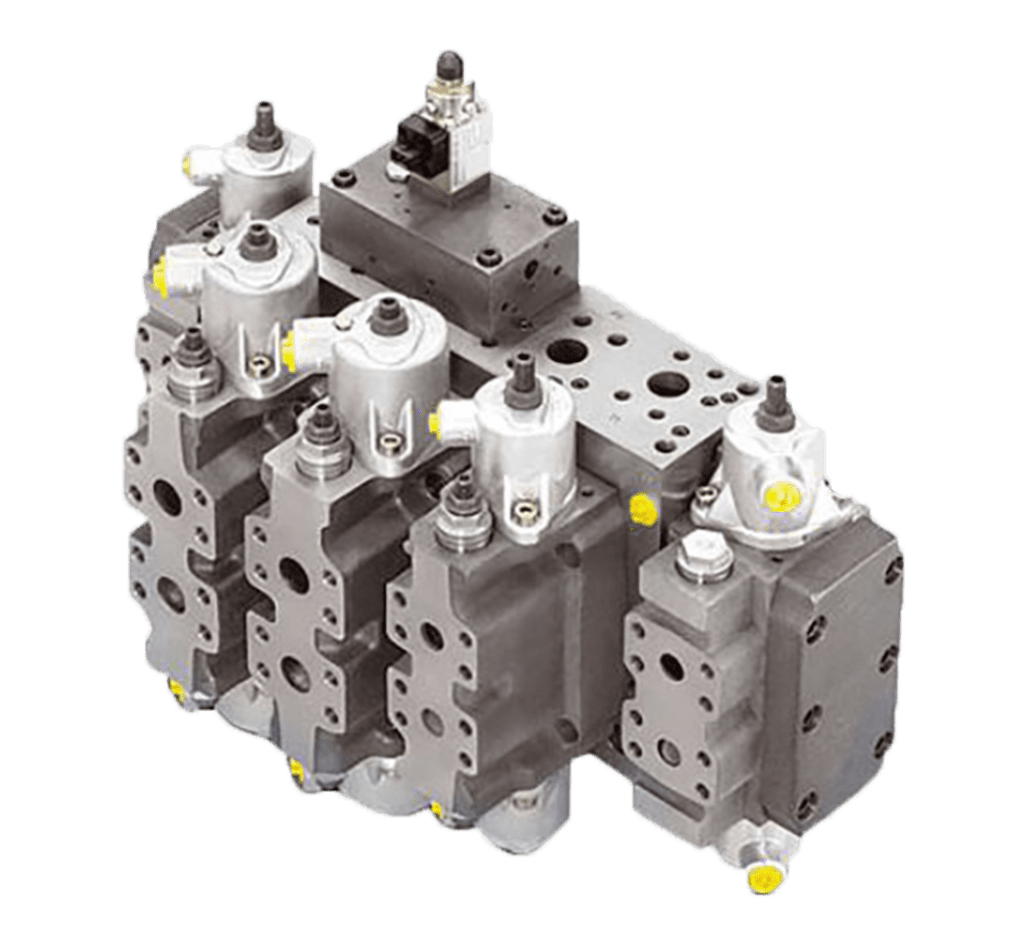High-pressure valves
We differentiate our valves in Monoblock and VT Modular. But what does that actually mean? In a monoblock, several valves are combined in one casting, including input and output sections, and individual sandwich valves can extend this. The VT Modular, on the other hand, is a modular valve manifold to which up to eight add-on valves can be configured.What are high-pressure valves?
Functions of high-pressure directional valves
High-pressure directional control valves distribute the flow rate of the pump to the individual actuators (e.g. hydraulic cylinders or hydraulic motors).
The machine operator sends a signal via the joystick, e.g. that a hydraulic motor needs more flow. This signal causes the hydraulic pump to deliver more oil and the valve then passes this on to the specific consumer.
The basic function of LHY Powertrain valves is a closed-centre valve with load sensing and pressure compensation downstream.
Our directional control valves have a nominal pressure of 400bar, therefore they are used in high pressure hydraulics (300-400bar).
What are high pressure valves used for?
If there are more actuators than pumps in a hydraulic system where high pressures occur, the directional control valves in this system distribute the flow to the individual actuators. This situation prevails in working hydraulics in an open hydraulic circuit.
Why high-pressure valves from LHY Powertrain?
The high-pressure directional control valves from LHY Powertrain offer high efficiency with low flow losses. In addition, all our valves work with our LSC, the Linde Synchron Control. This is a social flow distribution system in which all actuators continue to be served evenly, regardless of pressure, even if the flow rate is no longer sufficient (hydraulic saturation). For this purpose, the speed of each consumer is proportionally reduced.
However, if prioritisation is necessary or desired, individual actuators – such as the slewing gear of a machine – can be prioritised and thus continue to run at full speed.
Do you have questions about valves? We will be happy to advise your company: Contact



